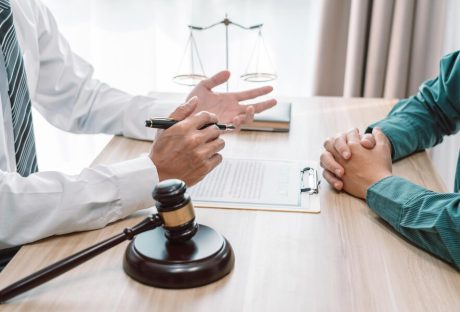Boating is a fun and exciting activity that many people enjoy. Whether you’re out on the open ocean, cruising on a lake, or fishing in a river, there’s nothing quite like the feeling of being out on the water.
But, with that excitement comes a certain amount of risk in the form of boating accidents. Unfortunately, accidents do happen to even the most experienced sailors, and they can be deadly.
If you’re someone who’s often out on the water or is looking to do so in the near future, it’s important to be aware of the most common types of boating accidents. This will help you be better prepared in the event that you do find yourself in one and how a boating accident attorney can help you keep your head above water.
1. Collisions With Other Boats
This might sound hard to believe given the open nature of any water surface big enough to accommodate boats but boat collisions happen to be one of the most common types of boating accidents.
Collisions can happen in a variety of ways, such as head-on collisions, T-bone collisions, or rear-end collisions. They often occur due to a lack of visibility, inattention, or reckless operation of the vessel.
In the event of a boat collision, you should first, check for injuries and provide medical assistance if necessary. Then, assess the damage to both vessels and exchange information with the other party involved. This could come in handy if you ever need to recruit the services of a boating accident attorney.
It’s also important to report the accident to the authorities, especially if there are injuries or significant property damage. Remember to get copies of any police or health records.
To prevent collisions, always maintain a safe speed and keep a lookout for other vessels. Be aware of your surroundings and use navigation aids such as charts and buoys to help you navigate. Avoid distractions such as using your phone or consuming alcohol while operating a boat.
2. Capsizing And Sinking
Capsizing occurs when a boat overturns while sinking happens when a vessel takes on water and eventually goes under. These accidents can be caused by a variety of factors, such as overloading, improper distribution of weight, or rough weather conditions.
If your boat capsizes or begins to sink, the most important thing is to stay calm. Try to gather any necessary safety equipment, such as life jackets or flares, and make sure everyone on board is accounted for. If possible, try to stay with the boat, as it can provide some flotation and protection from the elements.
3. Grounding And Running Aground
Grounding and running aground occur when a boat hits the bottom of a body of water, such as a sandbar or reef. These accidents can happen due to a lack of knowledge of the waterway, poor visibility, or equipment failure.
If you run aground, the most important thing is to assess the damage to your boat and determine if it’s safe to stay put or if you need to move to a safer location. If you’re stuck, try to lighten the load on the boat by removing any unnecessary gear or equipment.
4. Falls Overboard
Falls overboard happen due to a variety of factors, such as improper use of safety equipment, rough weather conditions, or alcohol consumption. Falls overboard can be particularly dangerous, as they can result in hypothermia, drowning, or other injuries.
If someone falls overboard, the most important thing is to act quickly. Stop the boat and throw a flotation device or life jacket to the person in the water. If possible, try to keep visual contact with the person and maneuver the boat to retrieve them.
Legal Implications Of Boating Accidents And How A Boating Accident Attorney Can Help
Boating accidents can have serious legal implications, especially if someone is injured or killed.
If you were in charge of the boat during the accident, it’s important to follow proper protocol and report the incident to the authorities. Failure to do so can result in fines or legal action. If there are any injuries sustained, it’s important to seek medical attention as soon as possible.
You may also want to consult with a boating accident attorney to help you understand your legal options, navigate the legal system, and ensure that you receive any compensation you’re entitled to. They can also help you gather the necessary evidence to build a strong case and negotiate with insurance companies or other parties involved in the accident.
Read Also:
- 3 Safety Regulations That Indiana Truck Companies And Drivers Must Follow
- 10 Tips to Prevent Truck Accidents: The Complete Guide for Truck Drivers
- A Set Of The Best Exercises For Truck Drivers























